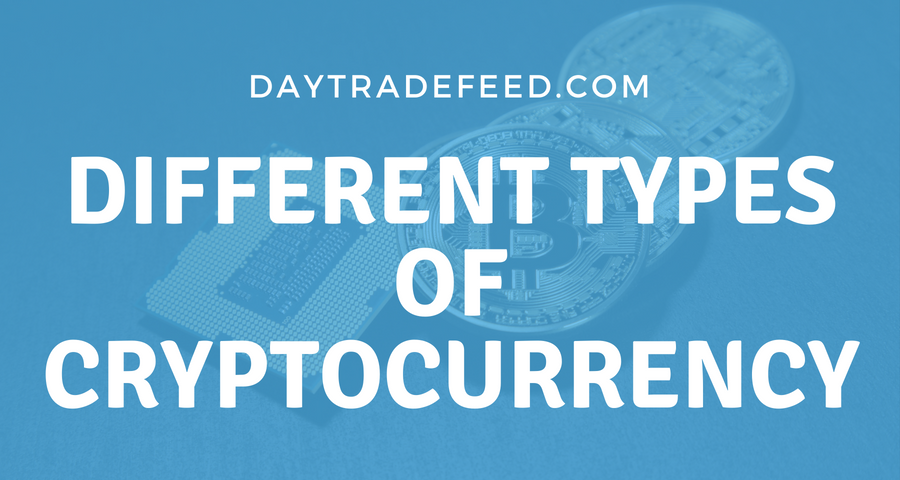
Types of Cryptocurrency
Above all, this page is meant to help you understand the different types of cryptocurrency beyond just Bitcoin. Bitcoin is extremely popular as of late, which means it’s difficult to obtain. The following descriptions give valuable information on the different types of cryptocurrency.
Three Major Cryptocurrency Categories
Before we get into the specific types of cryptocurrency, we need to go over the three main categories that each type falls into. These categories are:
-
Transactional Cryptocurrencies
- Stores and exchanges value.
- Examples include Bitcoin and Litecoin.
-
Cryptocurrency Platforms
- Creates infrastructure to build new Blockchain applications
- Ethereum is an example of a cryptocurrency platform meant to serve as a way to run smart contracts.
- Factom is another example of this. It allows developers to create secure record-keeping applications.
-
Cryptocurrency Applications
- Built on top of cryptocurrency applications.
- Meant for all types of uses, including creating a decentralized exchange for other types of virtual currencies.
[stock-market-ticker stockExchange=”Forex” width=”100%” symbols=”BTC” scroll=”false” speed=”normal”]
Top 10 Cryptocurrencies by Market Capitalization
As of 6/1/2018
Types of Cryptocurrencies You Should Know
Above all, you should know that not all types of cryptocurrencies are the same. The following types of cryptocurrencies stand above the rest. If you’re looking to invest, you’re probably going to want to know these up and down, back and forth.
Bitcoin (BTC)
Market Capitalization: $126,792,543,902
The first noteworthy decentralized currency to use Blockchain technology to implement person-to-person transactions, Bitcoin is hands-down the most well known cryptocurrency on the planet. Bitcoin is not controlled by any central bank or government, but instead uses the distributed blockchain as a ledger to record and verify all transactions in the history of the currency. This ledger shows the credibility of bitcoin owners, and helps avoid double spending problems like we’ve seen in the past.
Ethereum (ETH)
Market Capitalization: $56,731,495,888
This platform acts as a way to create smart contracts using Blockchain technology. These smart contracts consist of small amounts of (almost unchangeable) code written to the blockchain. Contracts can be used by referencing it in the Blockchain, which in turn, uses the network to verify the transaction.
Ripple (XRP)
Market Capitalization: $23,928,761,009
This platform and currency makes transactions between countries fast and easy. It works like this:
- Seller converts their currency to Ripple
- Seller requests the transaction on the blockchain
- Buyer obtains Ripple and consequently converts it to their own currency on the other end
Furthermore, this blockchain doesn’t use mining. In contrast, it relies on a fixed-amount of currency locked in time-based contracts.
Bitcoin Cash (BCH)
Market Capitalization: $16,859,922,910
Noteworthy for being a break-off of Bitcoin, this currency is most noteworthy for improving scalability issues. Bitcoin Cash implements an adjustable block size in the Blockchain, up to eight times as big as Bitcoin. Adjustable block size decreases the amount of fees because more transactions can fit within the block.
Finally, one of the drawbacks of adjustable block sizes is the increased amount of processing power required to verify any transaction. This makes hacking a bigger possibility.
Litecoin (LTC)
Market Capitalization: $6,717,599,555
Even smaller than Bitcoin Cash, this break-off of Bitcoin speeds up the transactional speed and functionality that its predecessor lacked. As a result, Litecoin transactions take around 25% of the time required by Bitcoin. This is mostly because of an easier proof-of-work system.
Furthermore, the increased speed makes Litecoin capable of handling more transactions with less fees.
Just the Beginning for Cryptocurrency
While the most popular types of cryptocurrency are included above, there are literally hundreds more out there waiting to take off. As a result, developers continue innovating the blockchain technology, allowing cryptocurrencies to evolve and innovate along with it.
In conclusion: Contact us to learn more about other types of cryptocurrency!
Home »